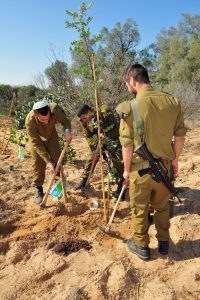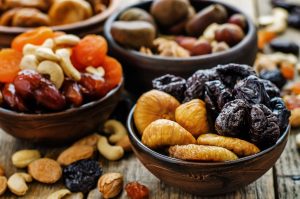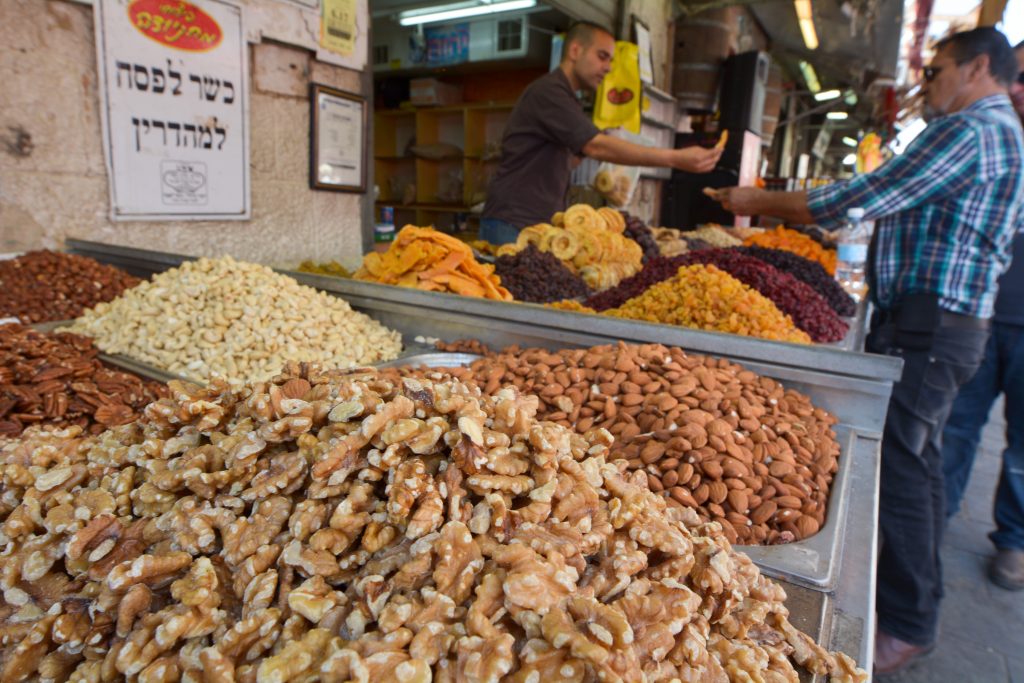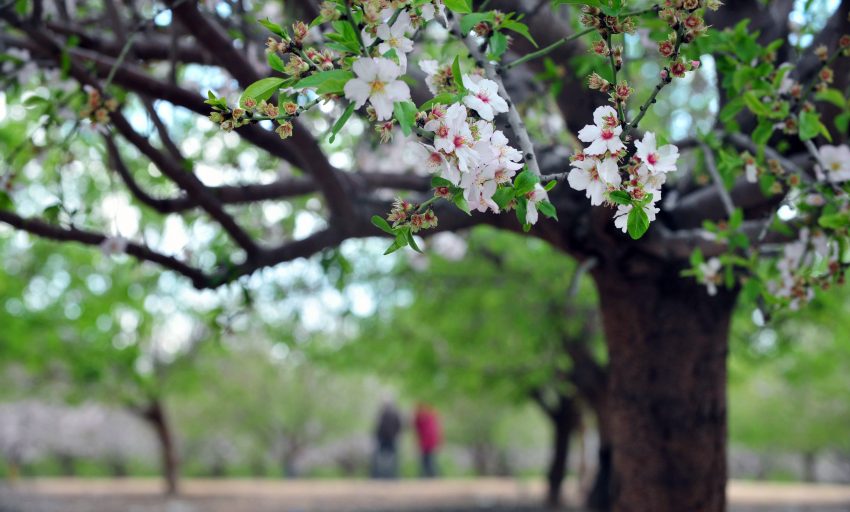On January 24-25, 2016, we will celebrate Tu BiShvat (In Hebrew: ט״ו בשבט), a Jewish holiday occurring on the 15th day of the Hebrew month of Shevat. It is also called “Rosh HaShanah La’Ilanot” (Hebrew: ראש השנה לאילנות), literally “The New Year of the Trees.” In contemporary Israel, the day is celebrated from both a religious and ecological perspective. Trees are planted to develop the land, and the holiday is celebrated religiously with a Tu BiShvat seder where local fruits are eaten.
Modern History of Tu BiShvat in Israel
The custom of planting trees on Tu BiShvat in modern times dates back to the end of the 19th century. Rabbi Ze’ev Yavetz, a scholar and historian, immigrated to Israel in 1887 and managed the local school in Zichron Yaakov. In 1890, on Tu BiShvat, Rabbi Ze’ev Yavetz led his students to plant trees, and the tradition to plant trees on this day was born. The Teachers’ Union and the JNF formalized this practice in 1908, and gave the day an educational focus on developing the land of Israel and improving the landscape.

Tu BiShvat in the Mishnah
Tu BiShvat appears in the Mishnah in Tractate Rosh Hashanah as one of the four New Years in the Jewish calendar. Based on this, the 15th of Shevat (Tu Bishvat) became the dat

e for calculating the beginning of the agricultural cycle for the purpose of biblical tithes.
Planting Trees in Israel on Tu Bishvat
Israel is the only country in the world to have a net gain of trees in the last 100 years, because of proactive tree planting. Tree planting reverses desertification, not only making the desert greener, but also adding nutrients that nourish the soil, transforming the desert to habitable land.
Israeli and Tourists Visiting in Israel – can join various special activities and plant a tree with the JNF.
Tu Bishvat Seder
In the 16th century, the Kabbalists of Tzfat (Safed) gathered for a Tu BiShvat Seder celebrated by eating fruit, particularly from the species that are singled out by the Torah in its praise of the bounty of the Holy Land of Israel, including grapes, figs, pomegranates, olives and dates. On Tu BiShvat we’re meant to evoke the feeling that, “man is a tree of 
the field,” (Deuteronomy 20:19) and reflect on the lessons we can derive from our botanical analogue. This includes discussing philosophical and Kabbalistic concepts associated with the day.
Visiting Israel for Winter Break 2016 – Order now NES Mobile
If you’re coming to Israel this winter break, January-February 2016, order now to qualify for FREE USA delivery, as well as our Early Bird Special. NES Mobile is a leading provider of communication services for visitors to Israel, offering NES Mobile pocket WiFi rentals, phones and Israel SIM cards.

